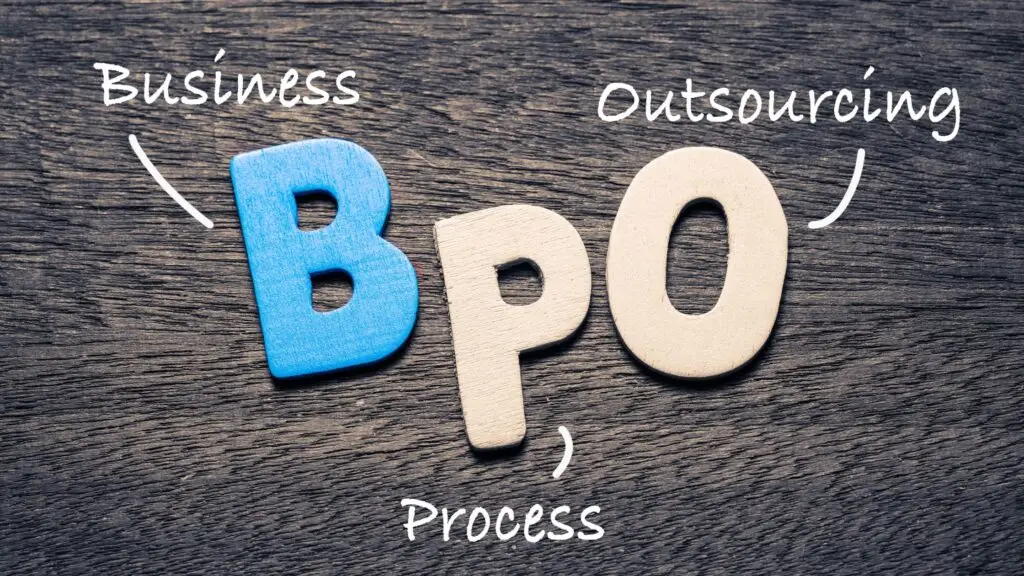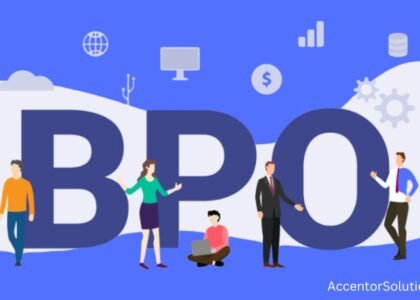In today’s highly competitive and globalized business environment, companies continuously seek ways to optimize their operations, reduce costs, and maintain a sharp focus on their core competencies. One of the most popular and effective strategies businesses have adopted is Business Process Outsourcing (BPO). This method allows organizations to delegate non-core business functions to external service providers, enabling them to increase efficiency and productivity.
BPO has grown tremendously in recent years, evolving from simple data entry tasks to complex processes like customer support, IT services, and finance. This article will provide an in-depth look at Business Process Outsourcing (BPO), including how it works, its benefits and challenges, the different types of BPO models, and the future of the industry.
Table of Contents
ToggleWhat Exactly is Business Process Outsourcing (BPO)?
Business Process Outsourcing (BPO) is the practice of contracting specific business operations or functions to third-party service providers. These services can range from basic administrative tasks to more complex business processes like payroll, customer service, IT support, and more. BPO providers are typically specialized in handling these functions more efficiently, allowing businesses to focus on their core operations and strategic initiatives.
BPO is typically categorized into three types based on the location of the outsourced service provider:
- Onshore Outsourcing: Outsourcing within the same country.
- Nearshore Outsourcing: Outsourcing to neighboring countries or those in the same region.
- Offshore Outsourcing: Outsourcing to distant countries, usually to take advantage of lower labor costs.
Some of the most common business processes that are outsourced include customer support, IT services, human resources (HR), accounting, and finance.
How Does Business Process Outsourcing Work?

The BPO process begins when a business identifies non-core functions that can be efficiently handled by an external provider. The company then selects a BPO partner with the expertise and resources necessary to manage these functions.
Here’s how a typical BPO process works:
Assessment and Planning
The business assesses which processes can be outsourced and then creates a strategic plan for outsourcing.
Selection of BPO Partner
Companies evaluate potential BPO providers based on their expertise, cost-effectiveness, technology, and scalability.
Contracting
A contract is drawn up between the business and the BPO provider, outlining the scope of work, key performance indicators (KPIs), and pricing.
Transition
The BPO provider takes over the specified processes, which may involve knowledge transfer, training, and integration of systems.
Management and Monitoring
Businesses continue to manage and monitor the outsourced processes to ensure quality and performance standards are met.
Popular BPO services include:
- Customer Support: Call centers, chat support, and email handling.
- IT Services: Managed IT services, technical support, and software development.
- HR Services: Recruitment, payroll processing, and employee management.
- Finance and Accounting: Bookkeeping, tax processing, and financial reporting.
Benefits of Business Process Outsourcing

BPO offers a variety of benefits to companies, especially those looking to streamline operations and cut costs. Below are some of the key advantages:
Cost Savings and Efficiency
Outsourcing helps companies save on labor costs, infrastructure, and technology investments. By leveraging the economies of scale of BPO providers, businesses can significantly reduce their operating expenses while maintaining high levels of service quality.
Access to Skilled Labor and Advanced Technology
BPO providers have specialized expertise in the services they offer, often possessing advanced tools and technology that businesses may not have in-house. This enables companies to access top talent and the latest innovations without the need for significant capital investment.
Focus on Core Business Functions
By outsourcing non-core tasks, businesses can redirect their internal resources and focus on what they do best, whether it’s product development, marketing, or customer relations.
Scalability and Flexibility
BPO allows businesses to scale their operations up or down depending on demand, without the constraints of hiring and training new employees or expanding infrastructure.
Challenges of Business Process Outsourcing

While BPO offers many benefits, it also comes with its share of challenges. Companies need to be aware of these potential pitfalls to manage their outsourcing relationships effectively.
Communication and Cultural Barriers
Outsourcing to offshore providers can sometimes lead to communication issues due to language barriers, time zone differences, and cultural misunderstandings. These barriers can affect the quality of service and customer satisfaction if not properly managed.
Quality Control and Data Security Concerns
Maintaining high standards of quality and ensuring data security can be challenging when outsourcing. Businesses must establish clear guidelines and protocols to protect sensitive information and maintain service levels.
Managing Outsourced Teams Effectively
Managing a remote team requires clear communication, defined processes, and regular performance monitoring. Without proper oversight, businesses may encounter issues related to productivity, quality, and accountability.
Types of Business Process Outsourcing Models

The BPO industry has expanded to encompass a variety of specialized outsourcing models. Here are some of the most common ones:
Knowledge Process Outsourcing (KPO)
KPO involves outsourcing tasks that require specialized knowledge and expertise, such as market research, data analysis, and legal services.
Legal Process Outsourcing (LPO)
LPO refers to the outsourcing of legal services, including document review, legal research, and contract management. This model is particularly popular with law firms looking to reduce costs.
Recruitment Process Outsourcing (RPO)
RPO providers manage the entire recruitment process, from sourcing and screening candidates to onboarding new hires. This model is often used by companies looking to streamline their hiring process.
IT Outsourcing (ITO)
IT Outsourcing focuses on delegating IT-related tasks such as software development, technical support, and infrastructure management to external providers.
The Future of Business Process Outsourcing

As technology continues to advance, the BPO industry is poised for further growth and transformation. Some emerging trends that are expected to shape the future of BPO include:
Automation and AI
Automation and artificial intelligence (AI) are increasingly being integrated into BPO services. From chatbots handling customer inquiries to AI-powered data analysis, these technologies can help BPO providers deliver faster and more efficient services.
Remote Work and Global Talent Pool
The rise of remote work has expanded the global talent pool, allowing businesses to outsource tasks to skilled professionals from anywhere in the world. This trend is expected to continue, offering companies more options when choosing a BPO provider.
Sustainability and Corporate Social Responsibility (CSR)
Companies are increasingly looking for BPO providers that prioritize sustainability and ethical practices. Providers that focus on reducing their environmental impact and supporting social initiatives are likely to gain a competitive edge.
How to Choose the Right BPO Partner

Choosing the right BPO partner is crucial to the success of an outsourcing strategy. Here are some key considerations when selecting a BPO provider:
Expertise and Track Record
Look for a provider with a proven track record in the specific services you need. Review case studies, client testimonials, and industry recognition to gauge their expertise.
Technology and Scalability
Ensure the BPO provider has the necessary technology and infrastructure to support your business as it grows. Scalability is critical, especially for businesses with fluctuating demands.
Strategic Alignment
Your BPO partner should align with your company’s values, goals, and long-term strategy. Establishing a strong, collaborative relationship is key to ensuring smooth operations and mutual success.
Communication and Transparency
Clear communication and transparency are essential for a successful outsourcing relationship. Make sure the provider offers regular updates, open lines of communication, and a transparent approach to problem-solving.
Conclusion
Business Process Outsourcing (BPO) has become an integral part of the modern business landscape, offering companies the opportunity to reduce costs, improve efficiency, and focus on core operations. Despite some challenges, the benefits of BPO make it an attractive option for businesses of all sizes. As the industry continues to evolve with advancements in technology and changing market dynamics, companies that effectively leverage BPO will be better positioned for growth and success in the future.
Whether you’re considering outsourcing customer support, IT services, or HR functions, BPO provides a strategic avenue to achieve business goals more effectively and efficiently. The key lies in selecting the right BPO partner and managing the relationship to ensure alignment with your business objectives.











